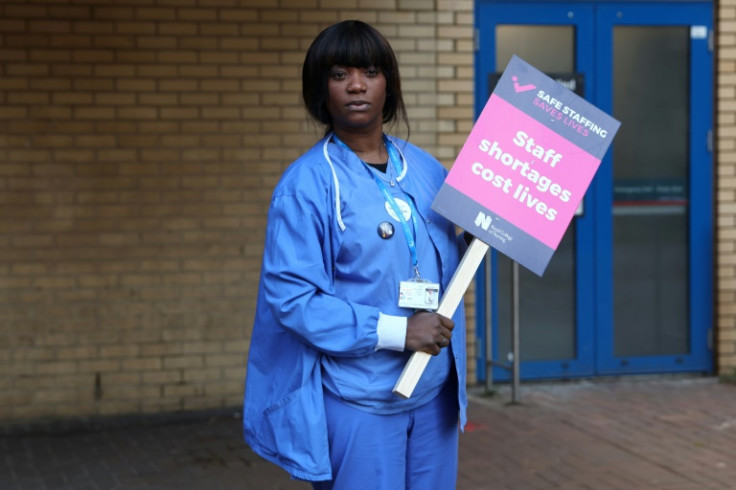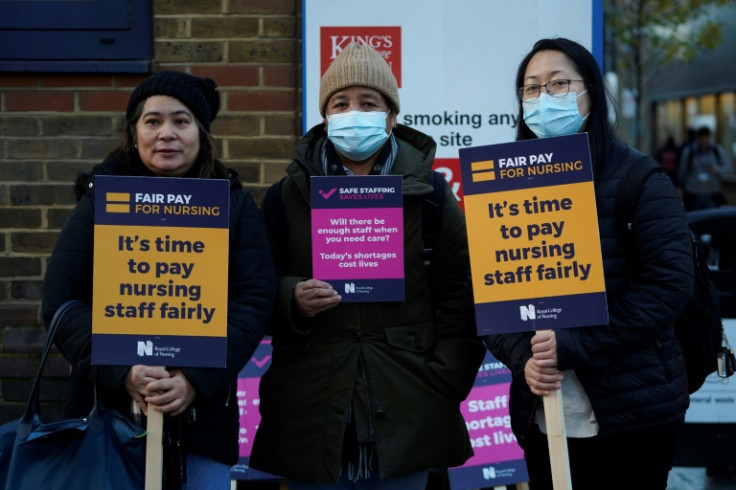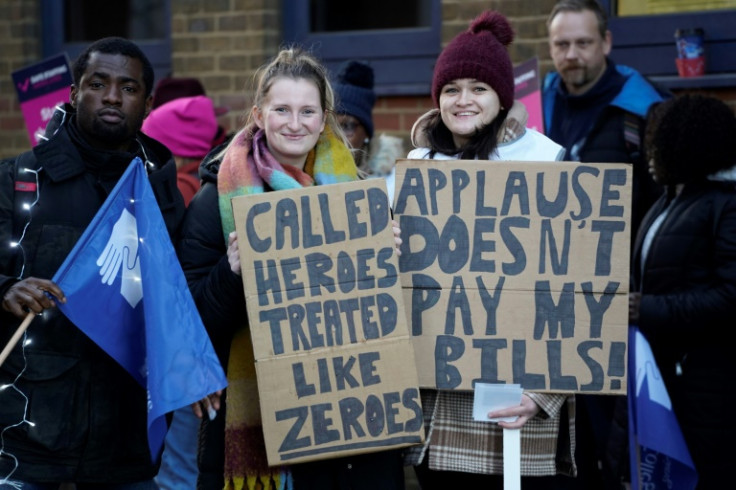UK nurses stage new walkout over pay
UK nurses on Tuesday staged a second one-day strike amid an increasingly acrimonious fight with the government for better wages and warnings that patient safety could be jeopardised.

UK nurses on Tuesday staged a second one-day strike amid an increasingly acrimonious fight with the government for better wages and warnings that patient safety could be jeopardised.
Up to 100,000 members of the Royal College of Nursing (RCN) in England, Wales and Northern Ireland walked out for the first time in the union's 106-year history last Thursday.
They want an above-inflation pay increase to make up for years of real-terms salary cuts, but the government insists it cannot afford anything above a roughly 4-5 percent rise.
On the picket line outside a central London hospital opposite parliament, Mamta Pun, 25, said Prime Minister Rishi Sunak's stance on the pay dispute was "a slap in the face for all healthcare staff, the general public and patients".
The intensive care nurse at the St Thomas' Hospital, where former premier Boris Johnson was treated in intensive care for Covid-19, said she and her colleagues finished shifts "anxious, scared, terrified" because of their workload.
Outside Aintree University Hospital in Liverpool, northwest England, Suni George, 45, said his pay had hardly changed in his 17 years as a nurse.
"We get a lot of tax so even when the annual income looks like it's gone up, we don't have more money," he said.
The striking nurses are among growing numbers of UK public and private sector workers taking industrial action over pay and working conditions, as they grapple with a cost-of-living crisis worsened by decades-high inflation.
The UK consumer prices index is currently running at nearly 11 percent, with inflation in double digits and energy prices soaring on the back of the war in Ukraine.
Ambulance workers, including paramedics and call handlers, are set to strike on Wednesday, prompting fears that many emergencies will not be dealt with.
A second walkout is scheduled for December 28, while others, including postal, railway and Border Force staff, are staging stoppages over the busy Christmas travel period.
The RCN has criticised Sunak's government for refusing to discuss pay as part of stalled negotiations.
RCN chief Pat Cullen said nurses would take wider industrial action next month if the dispute was not resolved.
"If this government keeps giving our nursing staff the cold shoulder as they have to date then, it's really unfortunate, that come January, we will see more hospitals being involved and striking and that means more nursing staff involved," she said.
The union has also accused Health Secretary Steve Barclay of adopting a "macho" negotiating style during brief meetings held recently.
"The RCN's demands are unaffordable during these challenging times and would take money away from frontline services while they are still recovering from the impact of the pandemic," Barclay said Monday.
He and other ministers have reiterated that they can only accept the recommendations of an independent pay review body.
The government-appointed body of economists and human resources experts urged hiking healthcare sector pay at least ?1,400 ($1,740) on top of a 3.0 percent increase last year.
But critics argue it is constrained by government-imposed budget limits and that its assessment, published in July, predates current higher inflation rates.
Sunak is expected to be grilled about his response to the strikes and the cost-of-living crisis by senior MPs later on Tuesday.
Ministers plan to draft in 750 military personnel to drive ambulances and perform logistics roles to mitigate the impact of the strikes.
Despite the government's dogged insistence that it will not negotiate over pay, polls indicate the majority of people support the nurses' stance, and to a lesser extent other workers walking out.
However, after a year of strikes on the railways, only 37 percent backed its workers amid their ongoing dispute over pay and conditions.


© Copyright AFP 2025. All rights reserved.






















